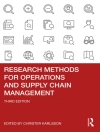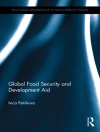Communicating Forgiveness is the first book to take a truly communicative look at the process of forgiveness. Authors Vincent R. Waldron and Douglas L. Kelley provide a synthesis of the literature on forgiveness in relationships. Grounded in real-life forgiveness narratives, this interdisciplinary text (pulling from such related fields as psychology, counseling, family studies, peace studies, conflict management, religious studies, and organizational behavior) offers a hopeful framework for negotiating healthy and just responses to relational disappointments.
Key Features
- Conceptualizes forgiveness as communication: Offering an alternative to predominant psychological approaches, this is the first book to focus on specific communication behaviors associated with forgiveness.
- Provides an emotional connection: Real- life narratives from long-term couples, friends, family members, and coworkers make the text readable and relevant to today′s relationships.
- Includes a chapter on the practice of forgiveness: Practical advice and specific guidelines resonate well with readers as they apply to genuine friendships, romances, families, and workplaces.
- Offers path-breaking theory development: The book organizes existing forgiveness research around a descriptive communication framework, demonstrating how existing psychological research can be enriched through the application of communication theories.
- Presents a highly personal closing chapter: In the final chapter the authors provide a personal account of their experiences as researchers through ‘On the Drive Home’ vignettes that convey key lessons learned.
Intended Audience
This is an excellent supplemental text for a variety of advanced undergraduate and graduate courses such as Conflict Management, Interpersonal Communication, Family Communication, Communication in Personal Relationships, Psychology of Personal Relationships, Counseling, and Peace Studies in the departments of Communication, Psychology, Family Studies, and Counseling.
Tabela de Conteúdo
Preface
1. Conceptual Foundations
Why Is Forgiveness Important?
Theological Foundations
Social Science Approaches
2. Elements of the Forgiveness Process
Sensitizing Concepts: Communication as an Observational Lens
Transgressions and Traumatic Relational Events
Relational Context
Individual Factors
Communication Processes
Relationship Outcomes
Conclusion
3. Theorizing Forgiveness
Dialectical Theory
Uncertainty Management Frameworks
Identity Management Theories
Towards Negotiated Morality Theory (NMT) of Forgiveness
4. Communicating Forgiveness
The Forgiveness Episode: Six Communication Processes
Revealing and Detecting Transgressions
Managing Emotions
Making Sense
Seeking Forgiveness
Granting Forgiveness
Relationship Negotiation and Transition
Concluding Thoughts
5. Practicing Forgiveness
Five Reasons to Forgive
The Dark Side of Forgiveness
Prescriptive Models of Forgiveness
Communication Tasks of Forgiveness (CTF): A New Prescriptive Model
Reconciliation: A Possible Outcome of Forgiveness
Contributions From Long-Term Couples
Concluding Thoughts
6. Studying Forgiveness: Methodological Conundrums and Transformational Experiences
Why Do We Study Forgiveness?
Conceptual Definition: What Is Forgiveness Anyway?
Picking Our Paradigm: Which Questions Matter Most?
How Do You Measure Forgiveness?
Transformations
Appendices
References
Index
About the Authors
Sobre o autor
Douglas L. Kelley (Ph.D., University of Arizona; M.C., Arizona State University; B.A., Westmont College) is Associate Professor of Communication Studies at Arizona State University’s West Campus where he studies and teaches about communication in personal and family relationships. Dr. Kelley has published his work in such outlets as Human Communication Research, Communication Studies, and Communication Yearbook. He has served as Chair of the Family Communication Division of the National Communication Association. Dr. Kelley (with his colleague Vince Waldron) received funding from the Templeton Foundation to support research on the role of forgiveness in long-term marriage.












